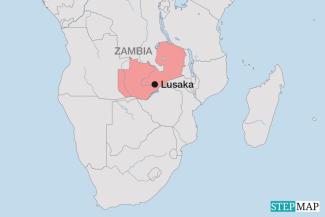Bank takeover
Indigenous banks collapsing in Zambia: A closer look at Investrust

Investrust Bank, a Zambian-owned financial institution becomes the second financial entity to be repossessed by the Central Bank (Bank of Zambia-BoZ), one year after the Development Bank of Zambia (DBZ). In 2016, Intermarket Banking Corporation – another locally owned bank suffered a similar fate after BoZ declared it insolvent. Meridien BIAO Bank, then the country's fourth largest bank, collapsed in 1995, alongside other local banks such as African Commercial Bank and Commerce Bank.
The recent takeover of Investrust Bank by the central bank has left account holders and workers in panic. The bank closure means that their deposits are not accessible for some time. Ironically, those who had taken out loans must immediately pay.
“If you borrowed from Investrust, you should think of getting a new loan from somewhere to repay the liquidator before the dark cloud catches up with you,” Moses Chitamfya, an account holder with Investrust Bank, says.
“The intervention is in the best interest of Investrust’s clients and the Bank of Zambia’s commitment to upholding its assurances regarding the insolvent bank,” says Leonard Mwanza, the chief executive officer of the Bankers Association of Zambia.
Mwanza noted that the decision to take possession of Investrust Bank is aimed at safeguarding stability in the financial sector and ensuring the integrity of payment systems thus mitigating potential risks.
Decisive action ensures an orderly exit for failing financial institutions and prevents further deterioration of the value of the bank’s assets, which all contribute to protection of clients’ interests and economic stability.
Denny Kalyalya, the Governor of the central bank, further defended their actions. “I must mention that this fiscal support is critical in the context of the need to protect the integrity of the financial system and to support other key measures to promote growth and financial inclusion.”
He reiterated that the Central banks’ actions were in accordance with the Banking and Financial Services Act 2017, amended by the Banking and Financial Services (Amendment) Act 2020.
Despite lack of requisite capital to successfully run their financial institutions, most locally owned banks fail to become innovative, are not proactive in terms of marketing and are not future oriented. “The management needed to do a lot of marketing to keep up with the big boys like ZANACO, FNB and ABSA among other competitors,” Gervin Simushi, a student of banking, says.
The closure of Investrust Bank spells doom for many. With its 20 branches located in six provinces (including the head office), Investrust Bank’s insolvency raises desperate anxieties and places workers on a path of utter destitution.
“Considering the already high unemployment levels in the country, it is obvious that this untimely development will unleash socio-economic challenges to most workers,” lamented Monica Chisha, one of the affected bank tellers at the defunct Intermarket Bank.
Derrick Silimina is a freelance journalist based in Lusaka.
derricksilimina@gmail.com
















